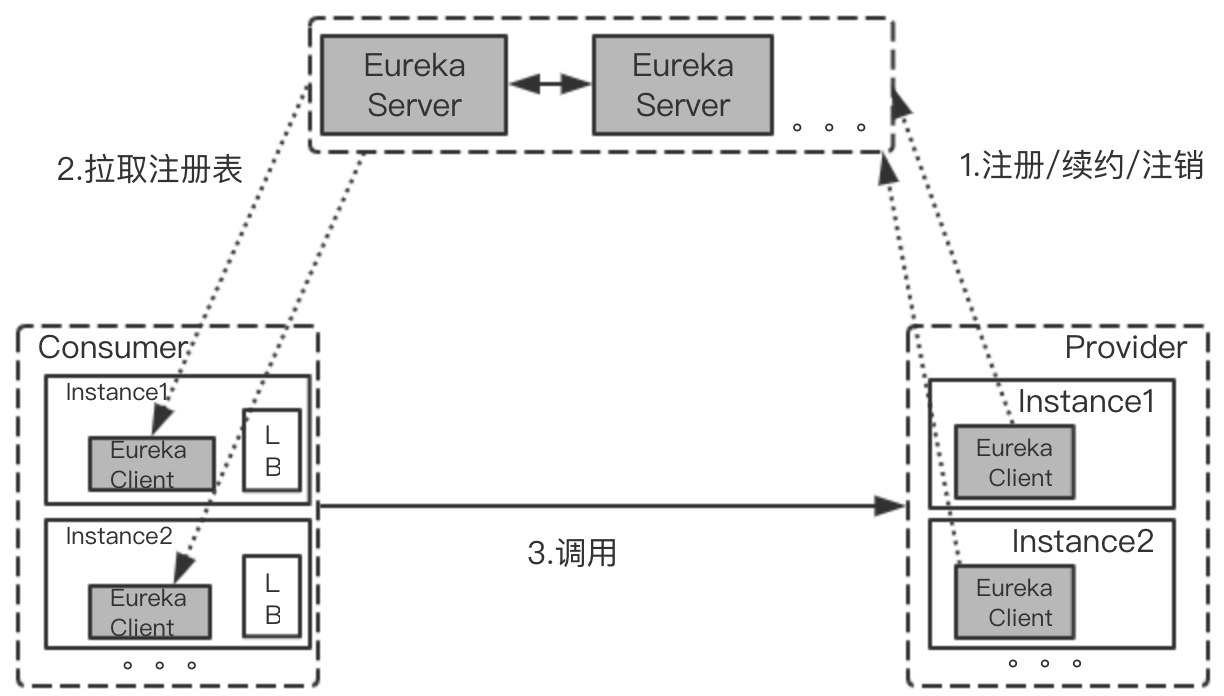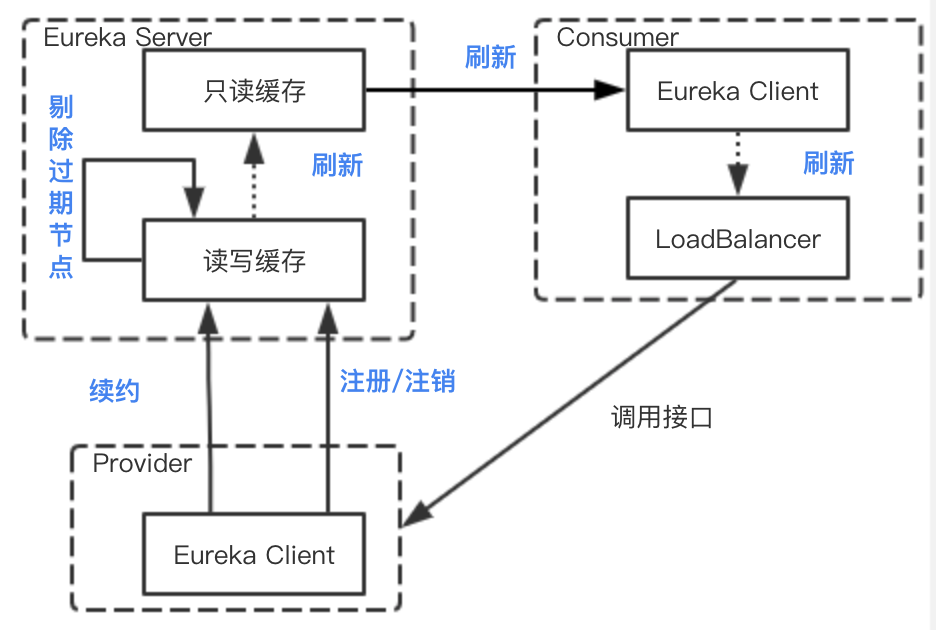Eureka服务发现机制

注册: 服务提供者启动后发送注册请求到Eureka-Server,默认注册信息生效时长为30秒。
续约: 服务提供者定时发送心跳给Eureka-Service,默认30秒一次,以刷新注册信息过期时间。若服务提供方不能续约,eureka-server将会注销该微服务节点(默认三个心跳周期90s)
注销: 服务提供者停机时发送注销请求到Eureka-Server。
调用: 服务消费者定时从Eureka-Server拉取服务注册表,并刷新本地缓存,默认30秒一次。服务消费者的负载均衡器(如Ribbon)向Eureka-Client获取服务提供者信息后,即可向服务提供者发送HTTP请求。
Eureka缓存机制

读写缓存定时刷新信息到只读缓存。刷新间隔:eureka.responseCacheUpdateIntervalMs,默认为30秒。
是否启用只读缓存可配:eureka.shouldUseReadOnlyResponseCache,默认开启。
Client定时从Eureka-Server拉取注册表,刷新本地缓存。拉取频率:eureka.client.registry-fetch-interval-seconds,默认为30秒。
LoadBalancer定时同步Client里的服务列表。同步间隔:ribbon.ServerListRefreshInterval,默认为30秒。可优化为实时刷新
服务下线不主动通知,则依赖剔除任务清除过期数据的机制。相关参数:续约间隔:eureka.instance.lease-renewal-interval-in-seconds,默认为30秒;节点有效期:eureka.instance.lease-expiration-duration-in-seconds,默认为90秒;清理时间间隔:eureka.server.eviction-interval-timer-in-ms,默认为60秒。
Eureka缓存机制造成的问题
在Client未同步到服务提供方下线信息前,流量仍会请求到下线节点上,导致Client报错,影响上游服务稳定性
多级缓存造成的同步延迟:
eureka.responseCacheUpdateIntervalMs+eureka.client.registry-fetch-interval-seconds+ribbon.ServerListRefreshInterval
默认为90s
解决方案
- Server端 关闭eureka.shouldUseReadOnlyResponseCache 或 缩短eureka.responseCacheUpdateIntervalMs
- Client端 缩短eureka.client.registry-fetch-interval-seconds
- ribbon配置 优化为实时从Client获取
- 延迟关闭服务,等待未同步的Client同步完成

![[片段] 方法参数收集](https://i.loli.net/2020/03/27/DKo1cSZmtew2sTP.jpg)
![[片段] Mybatis ParameterHandler实践](https://i.loli.net/2019/12/04/RUNcmFlT5ajLCAo.jpg)